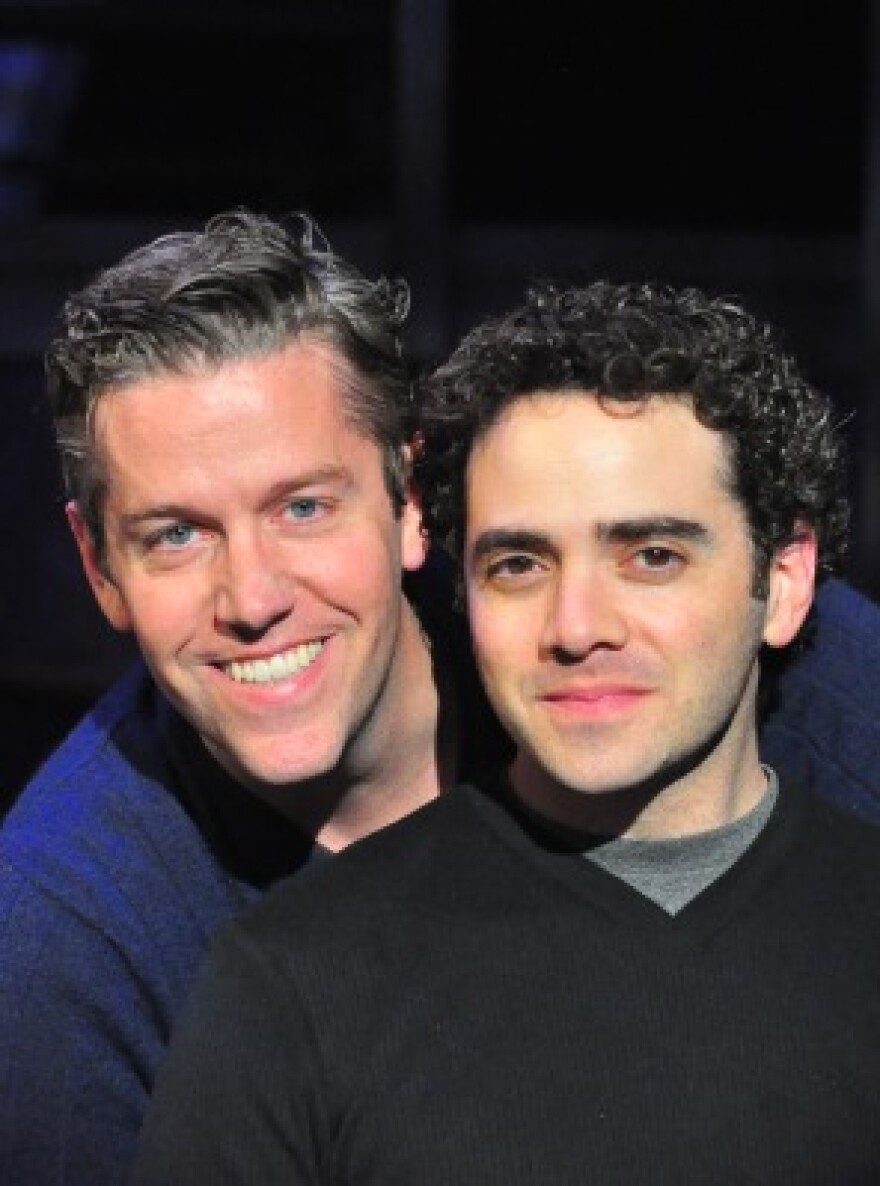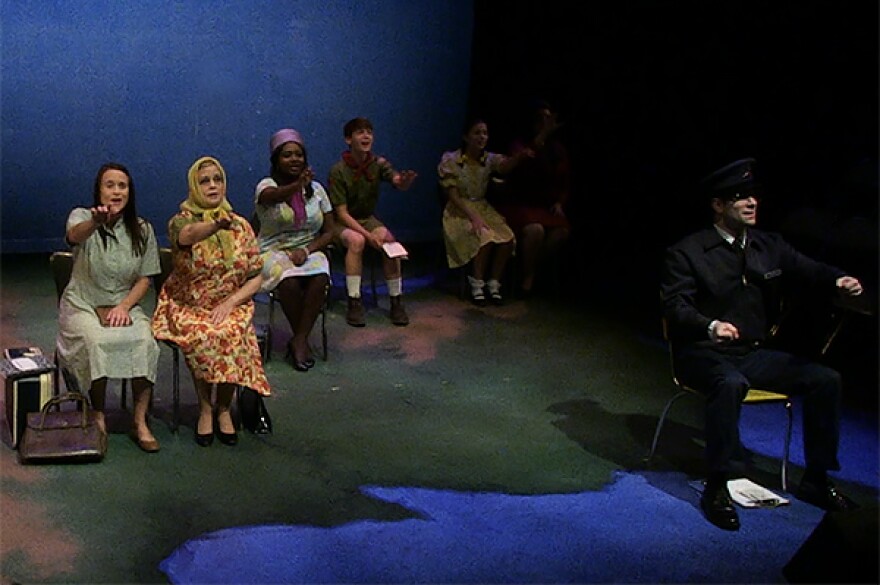Now that it's in its fourth season, Spinning Tree Theatre is proud to be Kansas City's youngest Equity theater company. Though it doesn't always do musicals, it has built a reputation with them, including its current production, Violet, with a title character unlike any musical theater heroine audiences have ever seen.
Here’s the cast on the night of a recent rehearsal:
The company founders, Michael Grayman and Andy Parkhurst, are the co-directors of Violet. They answered these questions as part of our monthly series, Director's Cuts:
Let’s have you two introduce yourselves.
Michael: I’m Michael Grayman, artistic director of Spinning Tree Theatre.
Andy: And I’m Andy Parkhurst, managing director of Spinning Tree Theatre.
The title character is a young woman whose face is severely disfigured in an accidental run-in with an axe, and traces her journey to an evangelist preacher she thinks can heal her. This is not a typical musical theater heroine, correct?
Michael: Correct. Yes.
Can you talk about what this young woman is about?
Michael: Again, she was scarred by the blade of an ax at the age of 13 and we know what kind of effect that can leave on a child. And it was not healed properly. She refers to it at one point in the show as sewn up like an old shoe. And so this is a woman who is trying to get healed. And you know, they’ve tried everything. And this televangelist based in Tulsa, Okla., is someone she knows can do it because she’s seen it on TV. She’s seen him hold his hands up and make the lame walk, so she makes that travel to Tulsa.
Andy: I think it’s about forgiveness. It ‘s about the scar she carries on her face and that she has to deal with society’s reaction to, so there’s a strong underdog theme. But also the bigger scar she’s carrying is the anger toward her father and learning how to forgive him for what was truly an accident.
Speaking of that scar, the Broadway production chose not to have Sutton Foster, the actress playing her as an adult, use any make-up or prosthetics at all to show this injury. But yet the actress playing her younger self does. How do you handle that? Is that mandated in the script?
Michael: It actually is not. And I know the original production at Playwrights Horizons in 1997, they also did not use any make-up or prosthetic whatsoever. We are not going to be using make-up ... because it is about a scar that runs deeper. And because we as an audience are asked to use our imagination, we’re going all the way with it.
What do you mean you’re "going all the way with it?"
Michael: She describes the scar so beautifully and we see the effect it has. We see the reactions from every other character when they look at her, what they’re thinking about her. So with that in mind, you don’t need the make-up. You don’t need the scar.
Andy: I think too the physical scar would bring the audience’s focus to the literal and it is a show that, in terms of the musical theater piece Violet was made into, it’s a charge of the audience’s imagination. But it would also bring their eye and their mind to the literal facial scar as opposed to the deeper internal scar she’s carrying, which is more significant.
Would you say the show’s score by Jeanine Tesori is gospel, country, or some kind of a mix? It’s not traditional Broadway music.
Michael: No, not at all. I always call it a mix of country, gospel and bluegrass, which she’s known pretty well for.
Andy, is there a song in the show that you think best exemplifies Violet’s mind set, her journey?
Andy: I think for me the song "On My Way," which is sort of the opening anthem. She is getting on the bus to go on her journey to Tulsa, and we meet an old lady, we meet Flick, the African-American soldier, and we meet some other characters. The whole metaphor for the show is the journey. That I’m going somewhere. I have an aim. I’ve summoned up all of my courage and strength and this is what I’m committing my life to, to making this choice.

Michael and Andy, you two are both directing - co-directing - the show. I don’t recall many shows with two directors. How do you avoid getting to that cliché of "too many cooks spoil the broth?"
Michael: It actually has become more a trend to have two directors. We have seen that in recent years. One of the things when we were forming a theater company, we knew we loved working together. We share the same talent, the same vision for a lot of things so one of the things we find is that it’s very easy for us to work together. It does become one mind.
At the end of a rehearsal, non-actors may or may not know you give notes that are very important to getting the show looking like you want it to. Are your notes always synchronous or not?
Andy: Almost always. But we will contradict each other, and that’s just life.
Andy, how does Violet fit into the mission of Spinning Tree Theatre?
Andy: Violet is a story about diversity, for sure. It has a female protagonist. It's also a story about African-American culture in 1964, so we're looking at different segments of society, holding a mirror up to ourselves now and see how we're dealing with each other. It's an intelligent piece of theater; that was our mission from the beginning — to do smart pieces that also resonate and entertain. This has been on our list since we started four years ago and it seems like perfect timing for it.
Spinning Tree Theatre's production of 'Violet' runs through Nov. 23 at Just Off Broadway Theatre, 3051 Penn Valley Drive, Kansas City, Mo., 816-569-5277.





